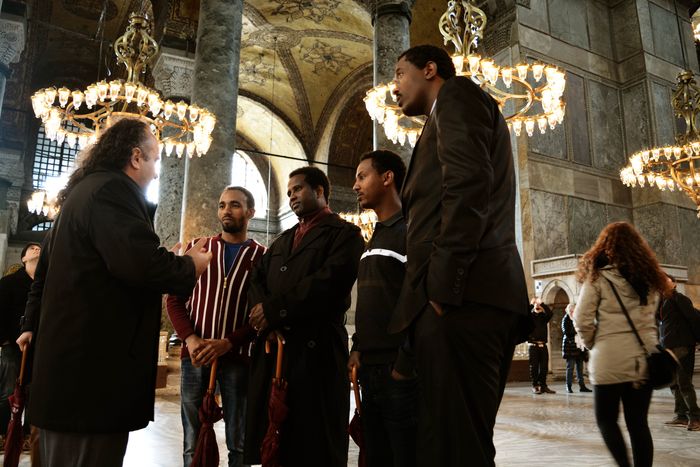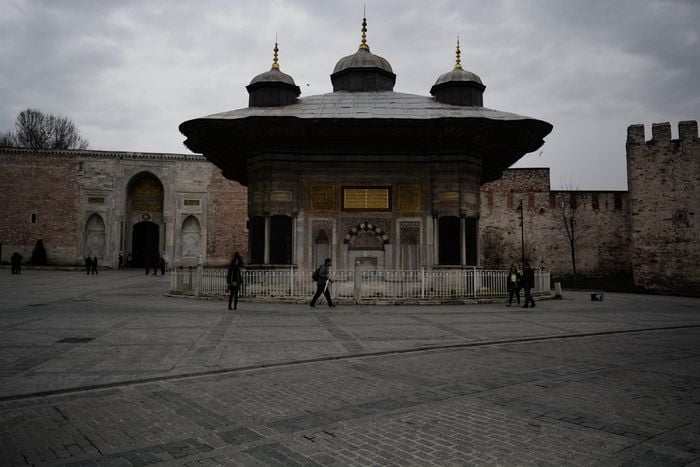What we find worshipped in Scripture, and in how many ways we show worship to creatures
First, those places in which God, who alone is holy, has rested, and His resting-place in the saints, as in the holy Mother of God and in all the saints. These are they who are made like to God as far as possible, of their own free will, and by God’s indwelling, and by His abiding grace.
They are truly called gods, not by nature, but by participation; just as red-hot iron is called fire, not by nature, but by participation in the fire’s action. He says: “Be ye holy because I am holy.” (Lev. 19.2) The first thing is the free choice of the will. Then, in the case of a good choice, God helps it on and confirms it. “I will take up my abode in them,” (Lev. 26.12) He says. “We are the temples of God, and the Spirit of God dwells in us.” (I Cor. 3.16) Again, “He gave them power over unclean spirits, to cast them out, and to heal all manner of diseases, and all manner of infirmities.” (Mt. 10.1) And again, “That which I do you shall do, and greater things.” (Jn. 14.12) Again: “As I live, God says, whosoever shall glorify Me, him will I glorify.” (I Sam. 2.30)
Again: “If we suffer with Him that we may be also glorified with Him. (Rom. 8.17) And “God stood in the synagogue of the gods; in the midst of it He points out the gods.” (Ps. 82.1) As, then, they are truly gods, not by nature, but as partakers of God’s nature, so they are to be worshipped, not as worshipful on their own account, but as possessing in themselves Him who is worshipful by nature. Just in the same way iron when ignited is not by nature hot and burning to the touch, it is the fire which makes it so. They are worshipped as exalted by God, as through Him inspiring fear to His enemies, and becoming benefactors to the faithful. It is love of God which gives them their free access to Him, not as gods or benefactors by nature, but as servants and ministers of God.
We worship them, then, as the king is honoured through the honour given to a loved servant. He is honoured as a minister in attendance upon his master–as a valued friend, not as king. The prayers of those who approach with faith are heard, whether through the servant’s intercession with the king, or whether through the king’s acceptance of the honour and faith shown by the servant’s petitioner, for it was in his name that the petition was made.
Read More about King Solomon of Kentucky part 17








